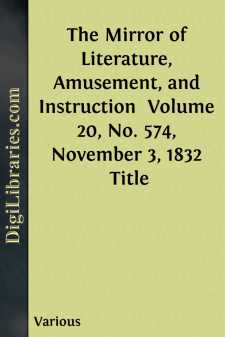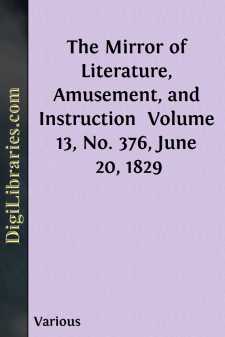Categories
- Antiques & Collectibles 13
- Architecture 36
- Art 48
- Bibles 22
- Biography & Autobiography 815
- Body, Mind & Spirit 144
- Business & Economics 28
- Children's Books 18
- Children's Fiction 14
- Computers 4
- Cooking 94
- Crafts & Hobbies 4
- Drama 346
- Education 58
- Family & Relationships 59
- Fiction 11833
- Games 19
- Gardening 17
- Health & Fitness 34
- History 1378
- House & Home 1
- Humor 147
- Juvenile Fiction 1873
- Juvenile Nonfiction 202
- Language Arts & Disciplines 89
- Law 16
- Literary Collections 686
- Literary Criticism 179
- Mathematics 13
- Medical 41
- Music 40
- Nature 179
- Non-Classifiable 1768
- Performing Arts 7
- Periodicals 1453
- Philosophy 65
- Photography 2
- Poetry 896
- Political Science 203
- Psychology 44
- Reference 154
- Religion 515
- Science 126
- Self-Help 85
- Social Science 82
- Sports & Recreation 34
- Study Aids 3
- Technology & Engineering 59
- Transportation 23
- Travel 463
- True Crime 29
Our website is made possible by displaying online advertisements to our visitors.
Please consider supporting us by disabling your ad blocker.
The Atlantic Monthly, Volume 07, No. 41, March, 1861
by: Various
Categories:
Description:
Excerpt
GERMAN UNIVERSITIES.
THE PROFESSORS.
"Which of the German universities would be the best adapted to my purpose?" is the question of many an American student, who, having gone through the usual course in the United States, looks abroad for the completion of his scientific or liberal studies. Of Göttingen and Heidelberg he will often have read and heard; the reputation of the comparatively new university of Berlin will not be unfamiliar to him; but of Tübingen, Würzburg, Erlangen, Halle, or Bonn, even, he will perhaps know little more than the name. In the majority of the last-named places, foreigners, especially his own countrymen, are rare; none of his friends have studied there; they have followed the current, since the last century, and spent their time in Göttingen or Heidelberg, perhaps a winter in Berlin. They have found these institutions good, and affording every facility for study; but would not Munich, or Leipzig, or Jena, or any other one of the twenty-six universities of Germany, better answer the purpose of many a student?
During the last winter, in many conversations with a retired professor in Berlin, who manifested a special interest in American institutions, mainly in the American educational system, he was very particular in inquiring as to what we meant by our term College. He had read the work of the historian Raumer on America, and declared that from this he could get no notion whatever as to what the term meant with us. The very same thing occurs daily in the United States in regard to foreign, or, more properly, the Continental universities. Accustomed as we are to the prevalence of the tutorial system, the use of text-books,—in many parts of the Union not defining clearly the difference between the terms University, College, Institute, and Academy, giving the first name often to institutions having but one faculty, and that at times incomplete, with no theological, and often no law or medical department, forgetting that the University should, from its very name, be as universal as possible in its teachings, comprehending in its list of studies the combined scientific and literary pursuits of the age,—we are apt to look upon foreign schools of learning as similar in nature and purpose to our own, differing not in the quality or specific character of the teaching, but rather in the scope and extent of the branches taught. Yet nothing is farther from the truth. The result is, that many a one starts for Europe full of hope, to seek what he would have found better at home,—or, when prepared and mature for European travel, is left to chance or one-sided advice in the choice of a locality in which to prosecute further studies. Often with only book-knowledge of the language of the country, accident will lead him to the very university the least adequate to his purpose.
Having now spent some time in four of the leading German universities, and contemplating a longer stay for the purpose of visiting others, the writer has thought that some general remarks might call attention to points often disregarded, and serve to give some insight into the nature of the institutions of learning of the country,—rather aiming to characterize the system of higher education as it now exists than to give detailed historical notices, including something of student-life, and the professors,—in fine, such observations as would not be likely to be made by a general tourist, and such as native writers deem it unnecessary to make, presupposing a knowledge of the facts in their own readers....












